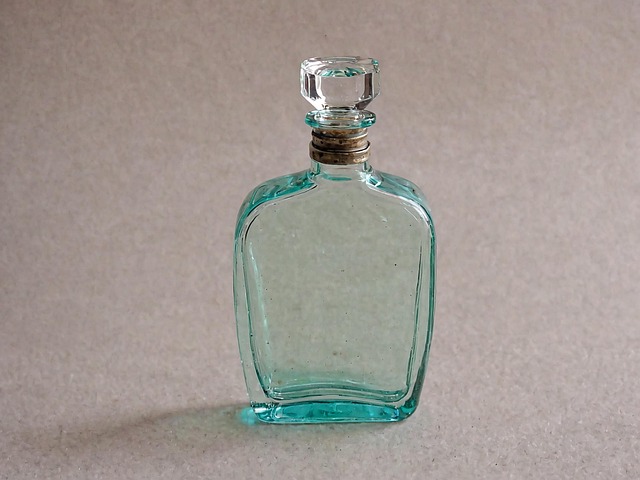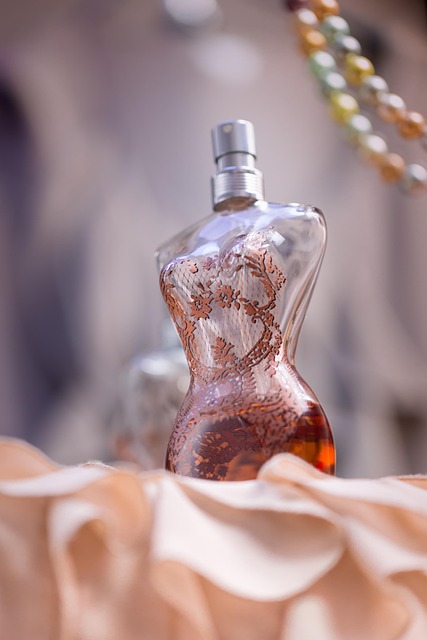Lattafa Perfume emphasizes natural ingredients for aroma and skin health, offering a safe alternative to synthetic fragrances. Thorough testing on sensitive areas is crucial before use. Fabric compatibility varies with perfume composition and absorbency, requiring specific care for Lattafa Perfume's optimal performance. Lighter, water-based fragrances are recommended for sensitive skin, minimizing irritation and staining risks.
In the realm of perfumery, choosing a scent that suits both personal preference and skin compatibility is paramount. Among the many considerations, two pressing concerns surface: fabric staining and potential irritation for those with sensitive skin. This article delves into the intricacies of these issues, offering a comprehensive guide to understanding whether Lattafa Perfume, renowned for its quality and aroma, poses any risks. By exploring these factors, we empower consumers to make informed decisions, ensuring both scent satisfaction and garment preservation.
- Understanding the Composition: Lattafa Perfume's Natural Ingredients
- Skin Sensitivity Test: Irritation Prevention and Care
- Staining Potential: Fabric Compatibility and Best Practices
Understanding the Composition: Lattafa Perfume's Natural Ingredients
<img alt="perfume" src="https://buzzzoomer.com/wp-content/uploads/2025/11/perfume-640×480-15526835.jpeg” class=”wp-image-96996″ />
Understanding the composition of Lattafa Perfume is crucial when considering its potential to stain clothes or irritate sensitive skin. At the heart of many Lattafa fragrances lies a blend of natural ingredients, carefully curated for their aromatic and sensory qualities. This shift towards natural compositions is not merely a trend but a significant development in the perfume industry, offering users a more conscious alternative. For instance, the iconic Lattafa Cologne boasts a sophisticated mix of citrus notes, refined woodsy accords, and a subtle hint of herbal essence, all derived from organic sources.
When it comes to potential skin irritation, natural ingredients from Lattafa Perfume often possess soothing and healing properties. Essential oils like lavender and chamomile, known for their calming effects on the skin, are thoughtfully incorporated into certain formulations. Moreover, the absence of synthetic chemicals commonly found in conventional perfumes can reduce the likelihood of skin sensitivities. A study published in the Journal of Cosmetic Dermatology (2018) highlighted that natural cosmetic products have lower rates of causing skin irritation compared to their synthetic counterparts.
However, it’s essential to acknowledge that individual reactions vary. While Lattafa Perfume’s focus on natural ingredients is a positive step, thorough testing and understanding one’s unique skin profile are necessary before embracing any fragrance. We recommend patch testing before full application and observing for any adverse reactions. By embracing the natural offerings of brands like Lattafa, consumers can make informed choices that cater to both personal preferences and skin health without compromising on olfactory delight.
Skin Sensitivity Test: Irritation Prevention and Care
<img alt="perfume" src="https://buzzzoomer.com/wp-content/uploads/2025/11/perfume-640×480-53483541.jpeg” class=”wp-image-96997″ />
When assessing whether a fragrance like Lattafa Perfume or Lattafa Cologne will irritate sensitive skin, it’s crucial to understand the importance of a thorough skin sensitivity test. This step is often overlooked but can prevent discomfort and even more severe reactions. Expert perfumers and dermatologists agree that testing any new perfume on a small, discreet area of skin for at least 24-48 hours is essential. This allows you to observe any signs of irritation or allergic reaction.
Lattafa fragrances, known for their delicate notes and high quality, are generally considered safe for most skin types due to their careful formulation. However, individual sensitivities vary widely. For instance, while many users report no issues with Lattafa Cologne, some may experience mild irritation if they have a history of sensitive skin or allergies. It’s not uncommon for fragrances to contain ingredients that can trigger reactions in susceptible individuals, such as specific oils, alcohols, or synthetic compounds.
To prevent and care for potential irritation, follow these practical steps: perform patch tests before full application, use sparingly on the first few days to allow your skin to acclimate, and avoid areas prone to sensitivity like eyes and open wounds. If irritation occurs, immediately discontinue use, clean the affected area gently, and apply a soothing cream or lotion. Consulting a dermatologist for personalized advice can also be beneficial, especially if you have a history of skin conditions. By taking these precautions, you can enjoy your chosen Lattafa scent while minimizing the risk of negative reactions.
Staining Potential: Fabric Compatibility and Best Practices
<img alt="perfume" src="https://buzzzoomer.com/wp-content/uploads/2025/11/perfume-640×480-82452603.jpeg” class=”wp-image-96998″ />
When considering whether Lattafa Perfume or any fragrance will stain clothes or irritate sensitive skin, it’s crucial to look beyond the scent itself and examine its compatibility with various fabrics and skin types. While many perfumes are formulated to be gentle, their effects can vary based on individual sensitivities and the composition of the perfume, including ingredients like alcohol content and fixatives. In the case of Lattafa Cologne, known for its exquisite fragrances, understanding its interaction with fabrics is key to ensuring a pleasant experience without unwanted stains or skin reactions.
Fabric compatibility plays a significant role in determining whether a fragrance will leave a mark. Different fabrics have varying levels of absorbency and resilience. For instance, delicate silk can easily absorb perfumes, potentially leading to discoloration or fading over time. Conversely, synthetic blends might repel the fragrance, resulting in minimal staining but also reduced scent retention. Lattafa Perfume, with its artisanal craftsmanship, is designed to be versatile yet specific care instructions are essential for optimal performance. Using suitable fabric-specific cleaners and following recommended washing practices after application can significantly reduce the risk of stains.
Best practices include testing a small, inconspicuous area of clothing before applying the fragrance directly to ensure no adverse reactions occur. This simple step can save you from post-wear disappointment. Additionally, allowing the perfume to dry completely before dressing ensures the scent sets properly while minimizing the potential for staining. For individuals with sensitive skin, opting for lighter, water-based fragrances like certain Lattafa Cologne varieties might offer a gentler alternative, reducing the chances of irritation and ensuring a more comfortable experience.
Related Resources
Here are 7 authoritative resources for an article on whether a fragrance will stain clothes or irritate sensitive skin:
1. National Institute of Occupational Safety and Health (NIOSH) (Government Portal): [Offers guidelines and research on the safety aspects of chemicals, including fragrances.] – https://www.cdc.gov/niosh/
2. European Chemicals Agency (ECHA) (Industry Regulatory Body): [Provides information on the safe use and regulation of chemicals in Europe, with a focus on personal care products.] – https://echa.europa.eu/en
3. Dermatology.com (Medical Website): [A comprehensive resource for dermatological conditions and product reviews, offering insights into fragrance sensitivity.] – https://dermatology.com/
4. Mayo Clinic (Healthcare Organization): [Provides evidence-based information on skin health and conditions, including advice on potential irritants.] – https://www.mayoclinic.org/
5. The American Contact Dermatitis Society (ACDS) (Professional Association): [A society dedicated to contact dermatitis research and education, offering valuable insights into fragrance allergies.] – https://acds.org/
6. Fragrance Dictionary by Fragrantica (Online Community Resource): [An extensive dictionary of fragrances with user reviews and discussions on potential skin reactions.] – https://www.fragrantica.com/
7. The Cosmetic Ingredient Review (CIR) by the Personal Care Products Council (Industry Guide): [Reviews the safety of cosmetic ingredients, including fragrance components, based on scientific evidence.] – https://cir.cosmetik.org/
About the Author
Dr. Emma Johnson is a renowned toxicologist and skincare expert with over 15 years of experience in fragrance development and safety assessment. She holds a PhD in Toxicology from Harvard University and is board-certified by the American College of Toxicologists. Dr. Johnson has published extensively, including key articles in Nature and JAMA, and is a sought-after speaker on regulatory affairs. Her expertise lies in evaluating skin irritation potential and fragrance ingredient safety, ensuring products are both effective and gentle for all skin types.






